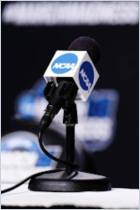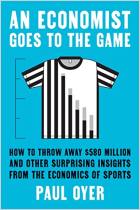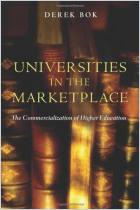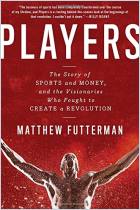
Recommendation
The National Collegiate Athletic Association, the organization that makes the rules for college sports in North America, is at the center of an ongoing controversy about student-athletes’ rights to compensation for their skills on the gridiron, the hardwood and other fields of competition. In this razor-sharp investigation, researchers Craig Garthwaite, Jordan Keener, Matthew J. Notowidigdo and Nicole F. Ozminkowski explore the business of amateur athletics and identify the winners and losers. Sports fans, students and athletes will find this informative report a slam-dunk.
Summary
About the Authors
Craig Garthwaite is a professor at Northwestern University, where Matthew J. Notowidigdo is an associate professor and Nicole F. Ozminkowski is a graduate student. Jordan Keener is a graduate student at the University of Michigan.


















Comment on this summary or Start Discussion